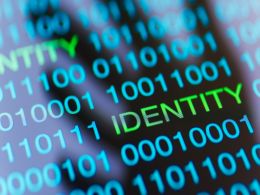
Could Self-Sovereign Identity Level Up Blockchain Adoption?
The concept of digital identity is gaining rapid traction across the globe. Four of the world’s five most populous countries – China, India, Indonesia, and Brazil – are in various stages of implementing government digital identity schemes, as are many other governments around the globe. However, currently, there are different approaches in terms of the technology used to manage a digital identity system, with some worrying implications for citizens’ privacy. The main concern is the […]
Related News
Cheqd, a blockchain startup whose software could drive the widespread adoption of digital identities, has announced it’s joining the CeDeFi Alliance with the goal of helping it to build a decentralized self-sovereign identity architecture that will open up the world of DeFi to institutional investors. In a lengthy blog post, cheqd co-founder and CEO Fraser […]
Heard the phrase "self-sovereign identity"? Here is what it means and how it could change your practical experience of the internet.
The blockchain-based domain name service (DNS) Blockstack, formally known as Onename, has announced a partnership with the Microsoft Azure platform. Developers will work with Microsoft to provide identity solutions, authentication, and storage services without the need for third-party arbitration. Blockstack: Self-Sovereign ID on the Blockchain. The....
ConsenSys, Microsoft, and Blockstack Labs collaborate to create an open-source, self-sovereign, blockchain-based identity system while ex-trader starts a non-profit ID2020 to address the problem at UN-level, through public-private partnership. According to the United Nations, there are around 1.5bn people across the world who have no way of proving who they are. Sam Cassatt, chief strategy officer of ConsenSys, says: “This project represents meaningful progress towards accessible, powerful identity for our world. If successful, we will enfranchise a significant portion of the global....
Developing self-sovereign identity should be a leading priority for every company, legislator and investor engaged in the security industry. To navigate well in a digital world, we must be able to easily and securely establish our digital identity. Traditionally, a username, password and some trivial arcana like our first pet’s name have been key pieces of information held by institutions to establish our digital identity. Unfortunately, this system has come at a high cost.Trusting third parties to securely hold our personal data is a risky — and often losing — proposition. The number of....





